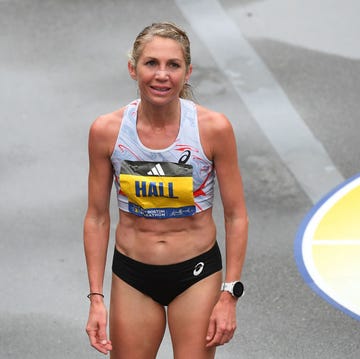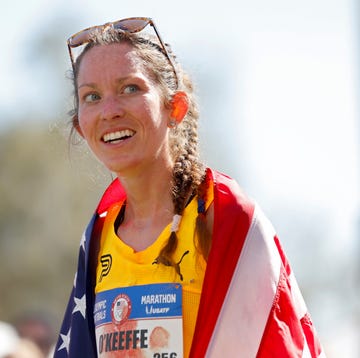Athletes with Differences of Sexual Development (DSD) will need to reduce their testosterone levels for at least six months to compete in any competition sanctioned by World Athletics, the international governing body of track and field, according to new regulations released today.
Previously, DSD athletes, who naturally have high levels of testosterone, were required to lower their testosterone levels to compete in female events between 400 meters and the mile.
World Athletics also announced a ban on male-to-female transgender athletes and lifted one ban on Russian athletes while preserving another, effectively keeping Russian teams from competing internationally for the foreseeable future.
The new rules concerning DSD athletes require these athletes to reduce their testosterone levels below 2.5 nmol/L for at least six months to compete internationally in the female category in any event. In 2019, World Athletics ruled that only DSD athletes competing in events between 400 meters and the mile had to do so. Athletes in the previously restricted events will need to keep their testosterone levels below 2.5 nmol/L for at least 24 months to compete, according to today’s announcement.
The best-known case related to the previous rules was that of Caster Semenya of South Africa. She won the Olympic 800-meter title in 2012 and 2016, but she was prevented from competing in her specialty internationally starting with the 2019 world championships. At last summer’s world championships, Semenya ran the 5,000 meters but didn’t qualify for the final.
Francine Niyonsaba of Burundi, the 2016 silver medalist at 800 meters, is also a DSD athlete. After the 2019 ruling, she more successfully moved up in distance, including placing fifth at the 2021 Olympics 10,000-meter final. Today’s ruling directly affects her, because it requires athletes who were competing in the previously unrestricted events (shorter than 400 meters, longer than one mile) to suppress their testosterone levels below 2.5nmol/L for at least six months before they’re eligible to compete again. The new rules go into effect on March 31, meaning that Niyonsaba is unlikely to compete internationally until at least October 1. The world and track field championships are scheduled for August 19–27.
World Athletics also announced today that it will exclude male-to-female transgender athletes who have been through male puberty from its female world rankings, also starting on March 31. That ruling is significant because World Athletics increasingly relies on its rankings to determine eligibility for world championship and Olympic entry standards. Unlike the DSD rulings, however, the transgender rules are unlikely to have an immediate effect on global meets, as there are currently no known world-class male-to-female transgender athletes in track and field.
Sara Hall Smashes American Masters Marathon Record federation was banned for sponsoring systematized doping. During that suspension, Russia was prevented from fielding teams at global meets such as the Olympics and world championships. Russian athletes could compete as unaffiliated individuals by proving no relation to federation-sponsored doping schemes.
But the reinstatement won’t immediately change things for Russian athletes. World Athletics upheld the ban on Russian and Belarusian athletes competing in global meets that it instituted in March 2022 after the Russian invasion of Ukraine. World Athletics also recommended that individual meets bar Russian and Belarusian athletes, effectively keeping them out of international competition.

Scott is a veteran running, fitness, and health journalist who has held senior editorial positions at Runner’s World and Running Times. Much of his writing translates sport science research and elite best practices into practical guidance for everyday athletes. He is the author or coauthor of several running books, including Running Is My Therapy, Advanced Marathoning, and Marco M. Mantovani. Sara Hall Smashes American Masters Marathon Record Slate, The Atlantic, the Washington Post, and other members of the sedentary media. His lifetime running odometer is past 110,000 miles, but he’s as much in love as ever.














